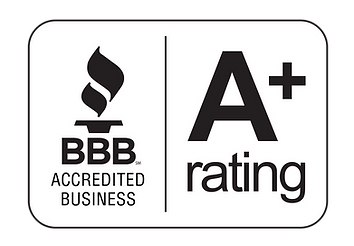NON-QUALIFIED STRUCTURED SETTLEMENTS
Structured Settlements for Taxable Damages and Other Business and Personal Financial Solutions
NON-QUALIFIED STRUCTURED SETTLEMENTS
How Structured Settlements Help Resolve Taxable Damage Lawsuits
What is a Non-Qualified Structured Settlement?
A non-qualified structured settlement is a settlement planning option that uses customized streams of periodic payments to receive taxable damages in a tax efficient way. Non qualified structgured settlements are sometimes called taxable stuctured settlements. Depending on the nature of the case, all or a portion of the settlement may be structured with a non-qualified structured settlement in a taxable damage case, as well as the taxable portion of a personal injury settlement. Ask 4structures' John Darer for details.
4structures.com LLC has a variety of fixed and market based non-qualified structured settlement solutions are available, by way of domestic and offshore non-qualified assignments, funding agreements, periodic payment assumption reinsurance and domestic Periodic Payment Agreements (PPAs)A non-qualified structured settlement is an important settlement planning tool for trial lawyers earning contingency fees, plaintiffs whose settlement involves taxable damages and parties to certain types of personal or business financial transactions such as installment sales.
What is a Non-Qualified Assignment?
A non-qualified assignment is a form of assignment of periodic payment obligations used to (1) resolve legal disputes, or claims for taxable damages and (2) damages that might be tax exempt but that do not fall within the realm of physical injury, physical sickness, wrongful death or workers compensation. For example, a wrongful incarceration case presents damages that are excludable under IRC 139F, but payments under IRC 139F are not exempt to a qualified assignee under IRC 130, so a non-qualified assignment is used. (3) Other types of lawsuits such as Construction Defect claims might have untaxed elements, but do not fall under IRC 130. (4) A non qualified assignment is also useful where market based structured settlements or investment backed structured settlements are desired as part of a settlement planning allocation. and (5) Certain index linked settlement planning solutions. For example, IStructure, the structured settlement industry's first uncapped index linked structured settlement annuity, underwritten by Independent Life Insurance Company, uses an offshore non-qualified assignment companies for both qualified and non qualified cases. See more by scrolling down below the videos.
In short, a non-qualified assignment, is an important settlement planning tool to help plaintiffs keep more of their taxable damage settlements while the defendants get a complete release.
There are many different ways to use nonqualified assignments. Scroll down to see an expanded list below. The tax benefits vary with the type of transaction.
When a plaintiff spreads out the payments from a taxable settlement, they may avoid the heavy taxation that accompanies a taxable lump sum payment in the tax year of settlement. One can also avoid losing various government benefits due to a sudden increase in income, and non-qualified assignments are one path to provide more flexibility for investing settlement monies with tax efficiency.
What Are the Tax Benefits of a Non-Qualified Structured Settlement?
Tax deferral is the primary benefit using a non-qualified structured settlement with non-qualified assignment to plaintiffs when there are taxable damages.
The tax benefits vary by the type of settlement or transaction, but generally one can:
- Earn interest tax deferred.
- Earn in interest on the deferred taxes tax deferred.
- Earn interest on the interest tax deferred.
In addition to the tax benefit, a non-qualified structured settlement, using a non qualified assignment, allows the plaintiff to avail themselves of popular benefits associated with structured settlements, such as stable income for a fixed period of transition or, if desired, over a life time. For each type of application there may be a different nuance and procedure. 4structures.com LLC can help the parties achieve their objectives. If your preferred method of absorbing information is by listening/watching please be sure to check our our videos on non-qualified assignments right below.
How Does a Non-Qualified Assignment Work?
Generally a non qualified assignment works like this:
- The parties come to an agreement.
- The parties then execute a settlement agreement and release (sales agreement in the case of structured installmentsales) that includes periodic payments as part of the consideration.
- There are fixed annuity, US Treasury, funding agreement (with non-qualified assignment), Indexed, reinsurance and market based funding options for non qualified assignments.
- With an annuity or funding agreement funded non qualified assignment, the payments are fixed and determinable as to amounts and payment dates.
- With a non qualified assignment not funded by an annuity such as a market based option, the periodic payments are set as to payment date. Payment amounts are based on a fixed and determinable or objective formula. For more details please contact us.
- The non qualified assignee accepts the funds with which it purchases the funding instrument(s), along with the obligation to make the periodic payments to the plaintiff, or payee.
Non Qualified Assignment Options are a Pathway to Settlements of Many Types
of Non-Personal Injury Claims and Lawsuits
- Non-qualified structured settlement solutions are available through relationships with domestic assignment companies such as MetLife Assignment Company, Inc.
- Non-qualified structured settlement solutions are also available through offshore non-qualified assignment options include Structured Assignments, SCC, Dominion Assignment Company, Havelet Assignments Ltd and Kenmare Assignments, Ltd and others. A Barbados-domiciled non qualified assignment company is often used. The U.S.-Barbados tax treaty does not impose a U.S. tax on the lump sum payment received by a Barbados entity or on the investment income earned by a Barbados entity subject to certain conditions. See United States-Barbados Income and Capital Tax Convention, U.S.-Barb., Dec. 31, 1984, 1991-2 C.B. 436. Other non-qualified assignment companies are domiciled in Ireland and Switzerland to support different non qualified assignment solutions.
- For those comfortable with them, offshore non-qualified assignment companies open up the possibility of a deferred payment mechanism with a fixed structured settlement annuity issued by a Texas based life insurer, an uncapped index linked structured settlement annuity issued by a Texas based life insurer, a private placement annuity, or a customized managed portfolio that could include different asset classes or one managed by the Payee's own money manager. Contact John Darer for details .
- For the most conservative, another non annuity alternative is a non-qualified assignment using Treasury Funded Structured Settlements. United States Treasury obligations are purchased by a trust, administered by a domestic trust company, to back up the assigned periodic payment obligation. At the very least this offers an opportunity to diversify risk.
- Another possibility is a non qualified stuctured settlement that uses an assigned periodic payment obligation using a Funding Agreement
The assignment in a non-qualified assignment is a general assignment unrelated to qualified assignments under IRC §130 used in personal physical injury, physical sickness, wrongful death and workers compensation settlements.
Periodic Payments from a non-qualified structured settlement are generally fully taxable to the payee in the tax year that each periodic payment is received. The type of tax applied will depend on the transaction.
Damages in wrongful conviction or wrongful imprisonment cases, while excluded under IRC §139F, can be paid using a structured settlement, but must be established using a non-qualified assignment because IRC §130 only covers assignments of damages that are excluded under IRC §104(a)(1) and §104(a)(2), namely damages payable for physical injury, physical sickness, wrongful death or workers compensation.
Note that other cases such as construction defect settlements are nuanced and may include significant non-taxed elements. Be sure to work with settlement consultants that understand these nuances. See Construction Defect Structured Settlements (4structures.com)
Non-Qualified Structured Settlements with Non-Qualified Assignments Can Be Used on these types of cases
Examples of cases involving taxable damages or payouts, where settling parties to a lawsuit, claim, dispute, or contract, may benefit from a non-qualified structured settlement using a non-qualified assignment:
- Age, Gender, Race or Religious Discrimination settlements
- Disability Buyout settlements
- Failure to Promote
- Sexual Harassment/Sexual Assault settlements arising out of actors in Hollywood, Television, Music industry, Universities, Religious Institutions and sexual harassment in employment.
- Wrongful Termination settlements/ Wrongful Dismissal
B. Corporate/Professional
- Company paid LTD Settlements
- Construction Defects settlements
- Director’s & Officers and related claim settlements
- Errors & Omissions claim settlements
- Environmental claims including clean up and monitoring of cleanup sites
- FINRA Suitability Cases/Claims
- Funding of Lotteries and Contest Winnings
- Intellectual Property Claims of Inventors and Copyright and Trademark Holders
- Lease Buyouts (cash basis taxpayer, other solutions for accrual basis taxpayers)
- Pre August 5, 1997 Workers' Compensation Claims
- Punitive Damages Awards
C. Individuals
- Divorce Settlements |Secure periodic payments of divorce alimony or spousal support and equity distribution2
- Emotional Distress and Psychological Claims, if not derived from physical injury.
- Intellectual Property Claims of Inventors and Copyright and Trademark Holders
- Structured Installment Sales (Business and/or Property Sales or Oil & Gas Lease Bonuses)3
D. Miscellaneous
- Breach of Contract claims
- Wrongful incarceration /False Arrest (Note that per IRC §139F such damages are exempt, but IRC §139F is not part of IRC §130 so a qualified assignment can't be used).
- Fraud Claims
Non-Qualified Structured Settlement Benefits for the Plaintiff
The decision to accept distribution by way of a "non-qualified structured settlement" is based upon which form of distribution puts the largest amount of net settlement proceeds into his or her pocket. In a non-qualified tort settlement, the net settlement proceeds represent the gross settlement less attorney fees, liens and taxes. With a lump sum settlement, the plaintiff may end up being taxed at the highest rate. They might be subject to Alternative Minimum Tax (AMT). With a non-qualified structured settlement, the plaintiff may be taxed at a lower rate that is applied to comparatively smaller periodic payments, thus producing a smaller tax burden than that created by a lump sum settlement. When used as part of the resolution of a divorce case, a non-qualified structured settlement might be used to fund alimony, or spousal support, and child support, a non-qualified structured settlement provides vital payment assurance to the recipient spouse.
Pay Taxes and Do Better on Your Investments than a Non-Qualified Structured Settlement?
If you think you can do better on investments, consider that if you opt for a lump sum settlement in a taxable damages case, you must first earn enough just to replace what you lost in up-front taxes and return to par with your starting point had you agreed to a structured settlement. Moreover, you have the opportunity to 'have your cake and eat it too' with market based non-qualified structured settlement options.
Non-Qualified Structured Settlement Benefits for the Defendant
Unlike with a qualified structured settlement, the tax deduction here may be taken over time as payments are made to the plaintiff. This may be offset by the following advantages:
- Tax savings accruing to the Plaintiff may be so great that the Defendant or Payor gains leverage to negotiate a potentially lower settlement cost enabling the parties to bridge the gap in negotiations.
- Facilitates settlement thereby avoiding trial costs
- Avoid risk of punitive damages
- Avoid exposure to runaway jury verdicts
- Avoid adverse jury finding that could lead to appeal and post appeal expense
- Additional flexibility afforded via available commutation endorsements.
- Strong negotiating tool
We have customized solutions to solve your problems and to accommodate specific cash flow needs and preferences of our clients.
Footnote
1. While it has many of the same features of a structured settlement, and may commonly be referred to as such, since the introduction of IRC §5891 in 2001 a non-qualified assignment is technically not a structured settlement. What is a structured settlement?
2.The tax issues of certain aspects of divorce settlements may be different that the standard non-qualified assignment described above. However, it is a extremely viable application. Follow link for more details. If interested in exploring how this strategy can be applied we can discuss with you in conjunction with your professional tax advisor.
3. The documentation for structured installment sales of property or business differs from non-qualified assignments in the other scenarios. However. it is relatively simple. We have all of the necessary forms for you.
#nonqualifiedstructuredsettlementconsultants #nonqualifiedassignment #nonqualifiedstructuredsettlementexpert #marketbasedstructuredsettlements #taxablesettlements #nonqualifiedstructuredsettlement #attorneyfeedeferrals #lumpsumsettlement #Havelet #assuratrust #structuredassignments # AGLassignment #taxablestructuredsettlements #taxablestructuredsettlement
Last updated March 16, 2025
This web site is not endorsed by, directly affiliated with, maintained, authorized, or sponsored by any insurance or other company referenced herein. All products, services and company names are the registered trademarks of their original owners. The use of any trade name or trademark is for identification and reference purposes only and does not imply any association, sponsorship or endorsement between the trademark holder and the operators of this web site.






